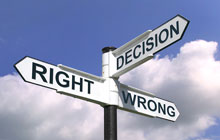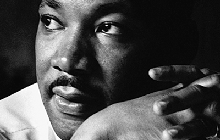Keeping the arguments previously presented in mind, we now move to the opposite position in this debate. The following article and video seek to demonstrate that capitalism actually helps the poor.
What is the Moral Case for Capitalism? (Source)
The practical case for capitalism is obvious: wherever economic freedom goes, prosperity follows. For example, the movement toward increased economic freedom in Asia corresponded to a historic decrease in poverty throughout the region. According to the World Bank, the number of people classified as poor in East and Southeast Asia was reduced to 345.7 million from 716.8 million in the 20 years ending in 1995. Think of it: 371 million human beings lifted from poverty in 20 years, an average of 18.5 million a year, or 50,000 each and every day for 20 years! That is a feat unprecedented in human history.
But the moral case is far more important. In an entertaining video, “Don’t Eat Your Dog: The Surprising Moral Case for Free Enterpise,” Arthur Brooks, author of The Road to Freedom, puts it this way:
“Once we think a policy or law is immoral or unfair, we are very unlikely to be swayed by logical argument saying that it’s actually OK. And, this helps explain why our free market system is on the ropes today.”
Brooks proceeds to make the case that free enterprise safeguards lasting happiness by supporting “earned success,” provides real fairness and does the most good for the most vulnerable.
Catholic Theologian Michael Novak also asserts the primacy of the need to make the moral case for capitalism: In a speech before the Mont Pelerin Society he says, “In addition to being political animals seeking liberty and economic animals seeking prosperity, human beings are also moral animals, thirsting for fairness, justice, truth, kindness, and love. What has capitalism to do with these?”
In answering that question, Novak provides ten moral advantages of capitalism, which I summarize here.
Capitalism:
- Breaks the habit of service dependency;
- Awakens the poor from isolation and connects them to the world of commerce;
- Turns human attention away from war and towards commerce and industry;
- Brings peoples from different countries and cultures into more frequent and complex interactions;
- Mixes the social classes together, breaks down class barriers and stimulate upward mobility;
- Rewards and makes possible the accumulation of human capital;
- Teaches the necessity of civility;
- Instructs more and more participants to develop the high moral art of sympathy;
- Instructs citizens in the arts of being farsighted, objective and future oriented;
- Defeats envy, the most destructive of social ills.
David Gordon provides a thoughtful response to many of the claims of those who oppose capitalism in his review of Harvard Professor Michael Sandel’s book, What Money Can’t Buy. One of the more important, and vexing, is the claim poor people are not really free to reject offers that those with even a modicum of income might decline. Says Sandel: “Market choices are not free if some people are desperately poor or lack the ability to bargain on fair terms.”
In his essay, “An Audacious Promise: The Moral Case for Capitalism,” Yeshiva University Professor James R. Otteson refocuses the question on the dignity of the individual:
What the free-enterprise system—Smith’s “obvious and simple system of natural liberty”—proposes, then, is the adoption of those political and economic institutions that manage to combine not one but two great moral imperatives: allowing people the opportunity to rise from the impoverished existence that seems to be humanity’s miserable, if equal, status quo; and respecting people as the irreplaceable and precious individuals that they are. That is a sublime conjunction of material prosperity and moral agency, the likes of which no other system of political economy has ever contemplated, let alone achieved.
—
To finish this chapter, the video referenced above, Brook’s “Don’t Eat Your Dog” is shown below:









